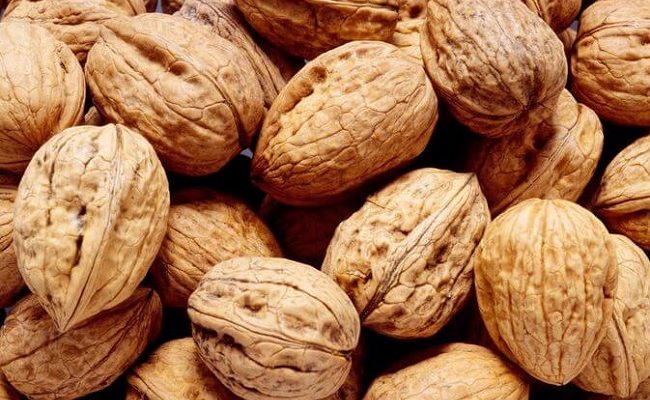
Several studies from different parts of the world have identified that cigarette smoking has an adverse effect on semen quality, especially in those who are heavy smokers or those who have been smoking for several years.
Interestingly, it has been observed that the concentration of nicotine in seminal fluid is high in men passively exposed to cigarette smoke. Nicotine does not only predispose damage to the process of sperm formation but also causes an increase in sperm DNA fragmentation.

Nicotine is the most abundant alkaloid in tobacco leaf and cigarette smoke; it sustains tobacco addiction and is suspected to be responsible for the deleterious effects cigarette smoking has on the reproductive system.
However, researchers in a study in the International Journal of Health Science have found that intake of African walnuts in men who smoke can ameliorate the effects of nicotine on sperm quality.
African walnut is an edible nut that is widely consumed traditionally by men. When administered to men on a Western-style diet, walnuts were identified to increase sperm motility, vitality, and normal morphology significantly.
Studies have shown that African walnuts are rich in antioxidants. It has been reported that walnuts ameliorate oxidative damage induced by high blood sugar levels, protect from liver damage, offer dose-dependent wound healing activity and reduce the inflammatory load on brain cells.
Sperm motility and quality were shown to be incremental following the intake of antioxidants by men with low sperm count and quality.
However, this study on the effects of a walnut-enriched diet on sperm parameters was conducted in an animal model induced with reproductive toxicity using nicotine and reported that its consumption was effective in attenuating testicular damage caused by nicotine administration.
In the study, the walnut-supplemented diet significantly increased the nicotine-induced reduction in sperm motility and sperm count. It also caused a moderate increase in sperm production in the animal model induced by reproductive toxicity using nicotine.
The study titled, “Ameliorative effects of African walnut on nicotine-induced reproductive toxicity in the rat model” involved Dr David Chibuike Ikwuka at the University of Nigeria, Enugu, in collaboration with Bond Ugochukwu Anyaehie, Ed Nwobodo, Emmanuel I. Umegbolu, and Choice Chinaemerem Nworgu.
The body mass of rats fed with six percent and 12 percent walnut-enriched diets did not differ significantly compared to rats fed the standard (control) diet over four weeks. The walnut-enriched diet did not affect body weight, meaning it is safe.
According to them, “From our investigation, nicotine proves to affect the male reproductive system and threatens male fertility. Our findings on the negative effects of nicotine on the male reproductive system is in line with the reports and findings of other researchers.
“In healthy men, there exists an effective scavenging system made up of various endogenous antioxidants that can remove the excess physiological reactive oxygen species (ROS) and prevent oxidative stress. However, the effect of this scavenging system is attenuated with an increased level of nicotine in seminal fluid.
“There was a significant improvement in the sperm motility and sperm count of rats supplemented with six percent and 12 percent walnut in the diet, but there was no clear observable increase in the number of abnormally shaped sperm (morphology) across the groups.
“African walnut could exert a therapeutic effect in the reduction of the adverse effect of nicotine on sperm motility, sperm count, and structure of the testes. It is worthwhile to consider it as a useful and affordable supplement to be added to the diet of males with infertility problems.”
Multiple studies have identified local foods and herbs that cannot only boost sex drive in men and women but also improve sperm parameters and pregnancy rate. The recent clinical trial of 40 infertile couples referred to Alzahra Hospital in Iran was published in the International Journal of Women’s Health and Reproduction Sciences.
The researchers investigated the efficacy of a combination of seven plants, including Allium cepa (onion), Zingiber officinale (ginger), Ocimum basilicum (scent leaf), Cinnamomum verum (cinnamon tree), Citrus sinensis (orange) peel, Citrullus lanatus (watermelon) seeds, and Daucus carota (carrot) seeds, in boosting fertility and pregnancy rates in humans.
According to the results, the number of sperms, overall motility, forward movement, and normal morphology of sperms after treatment showed significant improvement. Also, patients’ blood glucose levels meaningfully reduced after treatment.
The researchers declared: “The total volume of semen, total cholesterol, testosterone, and luteinising hormone (LH) levels did not significantly differ with the use of the compound herbal medicine. Seven couples during the study and after six months of receiving medication got pregnant.”
Read Also: Protest: PTD-NUPENG raises alarm over infiltration







